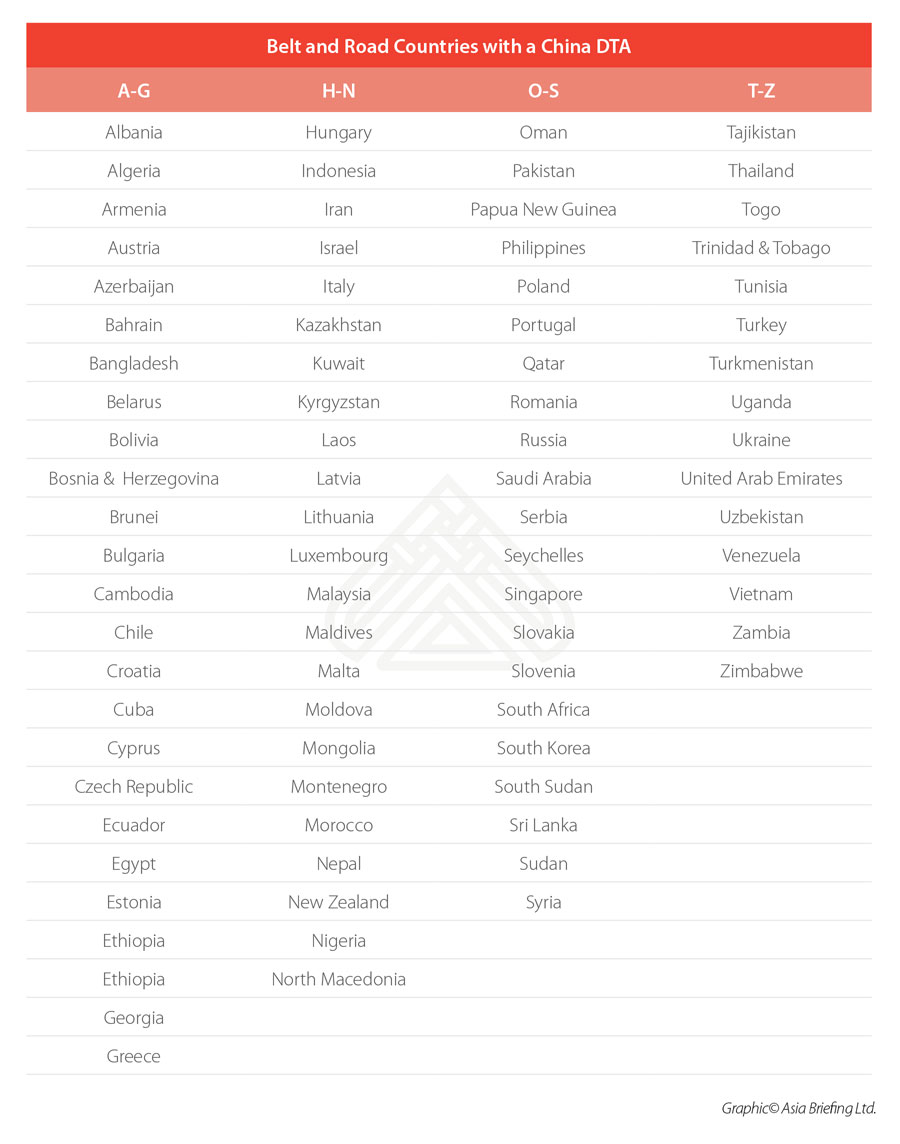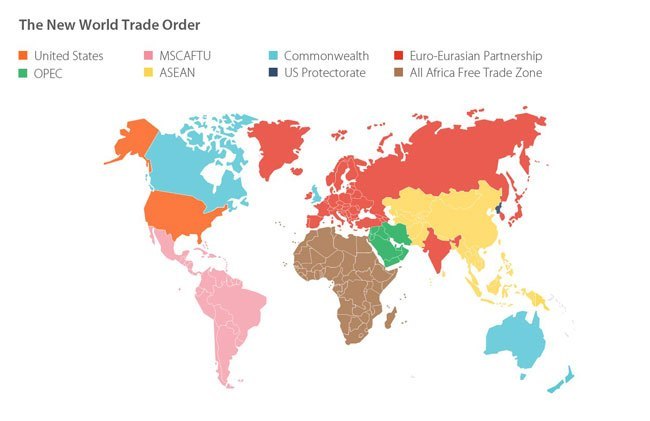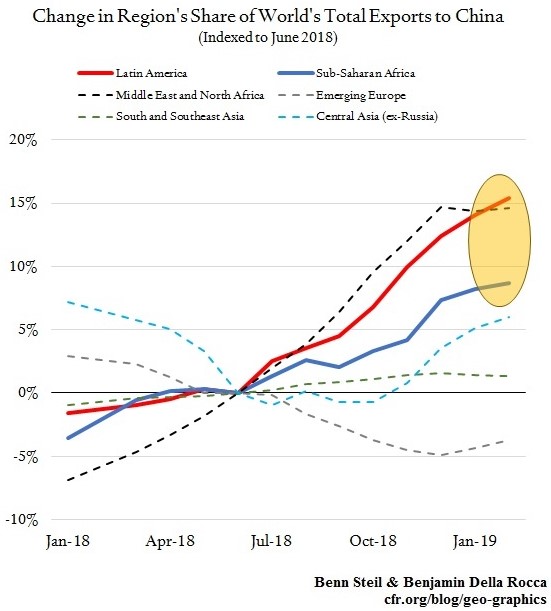Trump Blinks In US-China Trade War – But The New World Trade Order Is Already Here
Op/Ed by Chris Devonshire-Ellis
The dividing up of global trade marginalizing the US has already occurred
The news that Washington has delayed the imposition of further tariffs on Chinese products until 15th December may give the US-China trade commentators some brief respite and something new to talk about, however it only delays the inevitable: the US has been outsmarted by China. Washington’s respite is only partial in that it caters purely for the US Christmas market and is designed to give leeway to US middle men getting products over to the US retail stores in time for the seasonal market.
Tariffs on consumer electronics, video game consoles, certain toys, computer monitors and some footwear and clothing items are being delayed until Dec. 15, giving retailers time to stockpile the products they need for the back-to-school and holiday shopping seasons. American kids are now a pawn in the US-China tariff battle. But it’s a hollowed out form of relenting. This time next year, China won’t care. As I discussed yesterday in the piece China Makes Up US Trade War Trade Deficit By Buying Instead From ASEAN & The Belt & Road Initiative China has effectively encircled a United States still overly preoccupied with its own markets without having put any effort in developing its external trade. While the US builds a wall with Mexico, China has been encouraging trade ties with Central and South America. While the US imposes sanctions on countries throughout Eurasia – think Russia, Iran and Turkey among others – China embraces them with free trade deals. While the United States has neglected to update many of its bilateral investment treaties, the Chinese have been signing up countries to the Belt & Road MoU. While the US has torn up free trade agreements and insisted upon renegotiating them under threats of tariff increases, China has been quietly signing up to them.
US Double Tax Treaties Signed Off Since 2012: Zero
While the US hasn’t agreed any new Double Tax Treaties since 2012, China has signed off 13.
The Rise Of Alternative Regional Trade Blocs
In turn, other trade blocs have risen to prominence. These are now beginning to flex their muscles and the prognosis and anger at the manner in which the US has been throwing its weight around to create regional problems has not gone unnoticed. A year ago I posted a somewhat tongue-in-cheek article titled After Trump, Putin & Xi – How The New World Trade Order Will look In 2030 That contained what at the time was a deliberately provocative map, with Great Britain still hanging on, post Brexit to trade deals with Canada and Australia, Russia’s Eurasian Economic Union joining forces with the European Union and India, with China effectively being part of the ASEAN bloc (which it is in one way; it has a comprehensive FTA with ASEAN). Africa is shown united with the All-Africa Free Trade Zone (which actually occurred earlier this years) while Central and South America are linked via an expansion of Mercasur. The map looked like this:
What does this mean? It means that while the United States has been busy congratulating itself on being the greatest nation of earth, its not been paying attention. China hasn’t just caught up in term of economic size, its caught up in terms of trade and its ability to both absorb trade risk (from the United States) and access and develop emerging trade alternatives (Belt & Road Initiative). In fact, China’s share of emerging market trade has been growing over the past 18 months. Just look at the explosion of emerging market trade in the 12 months January 2018 – January 2019, it has not only grown, it has massively diversified.
The map produced as a debating point twelve months ago seems to have been partially prescient in its predictions. The US-China Trade War has only really served to show that the US was ill prepared for such a struggle and has been neglecting its own bilateral and global trade platforms for several decades. This decline is not a result of any recent developments. It is also one that will take decades to get right; not just in terms of putting into place updated, fair and responsible trade agreements but also in demonstrating that it can be a rather more humble, reliable, and far sighted trade partner than it is currently capable of demonstrating. China will face its problems later on, but for now the new World Order is right on the horizon. And the United States is inadequately prepared.
About Us
Silk Road Briefing is produced by Dezan Shira & Associates. The firm provides business intelligence, legal advisory, tax advisory and on-going legal, financial and business operational support to investors throughout China, India, ASEAN and Russia, and has 28 offices throughout the region. We also provide advice for Belt & Road project facilitation. To contact us please email silkroad@dezshira.com or visit us at www.dezshira.com








